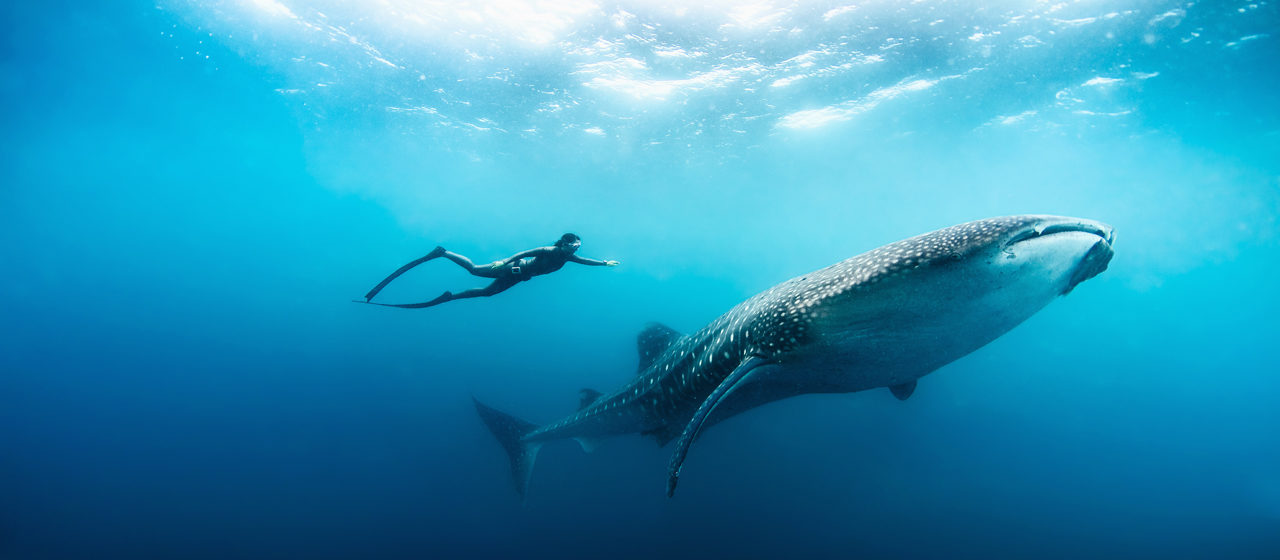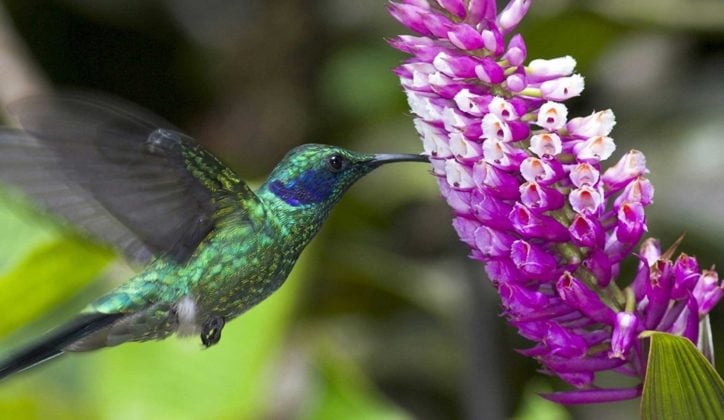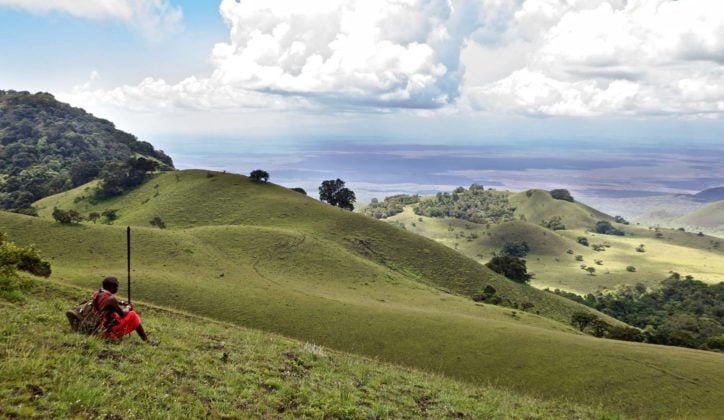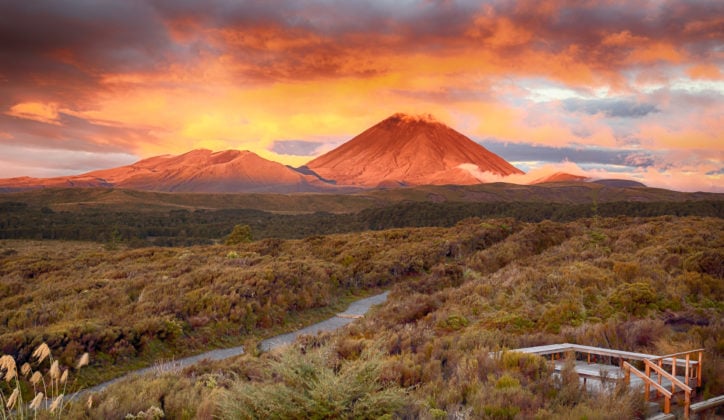Published on: July 6th, 2018
Last modified: December 28th, 2023
Before the launch of her stunning underwater photo exhibition at The Haven, in Hong Kong, we spoke to record-breaking freediver Hanli Prinsloo about her fascinating career and her passion for ocean conservation. Protecting the world's oceans and the vast array of marine life that live in them is vitally important for Prinsloo, as one can see at 'The Last Wilderness' exhibition and from her own work establishing the I AM WATER Ocean Conservation foundation. This is the second part of our interview series with Prinsloo.
Why did you establish your own ocean conservation foundation?
I started I AM WATER in 2010 just before I started transitioning out of competitive freediving. After all of my ocean experiences I, of course, had a sense that I wanted to protect the ocean. When looking at the landscape of conservation organisations I saw a lot of organisations focused on research and awareness which is so important but only if that science then gets to the decision makers who can influence policy. I didn’t always see that happen, so I knew that I didn’t want to get involved as that’s not my skill set and I wanted to make sure my talents served the most purpose: I’m a storyteller with a background in documentary filmmaking. I also saw organisations that are very activist-oriented and species-specific, for example fighting against whale hunting. I thought I really respect these people, they are doing unbelievable work, but again that’s not really my character – I’m not really a fighter. I didn’t see an organisation doing work that clearly focused on connection, and that’s where I thought that I AM WATER can start filling the gap of connecting people with the ocean, with each other and with whats inside of them.
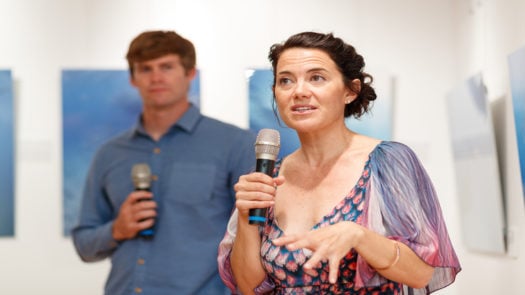
The vision behind I AM WATER was how can we connect people more with a beautiful ocean environment and give people transformational ocean experiences. Of course coming from South Africa, a country that has a history of so much division, I saw how even access to the ocean was so divisive and as a bit of a social-political activist, this was unacceptable. So that’s when we stepped in and started the projects we have near Durban and Cape Town. We saw school kids who even though they live within walking distance of the ocean, had never had an ocean experience. So now we work directly with the Department of Education to bring children to the beach and we offer ocean education, yoga, mindfulness, beach cleanup, rock pool exploration and snorkelling. More than 70% of the kids we work with can’t even swim, and often nobody in their family has ever swum, so we have to break generational cycles of fear, as well as breaking the pattern of lack of access.
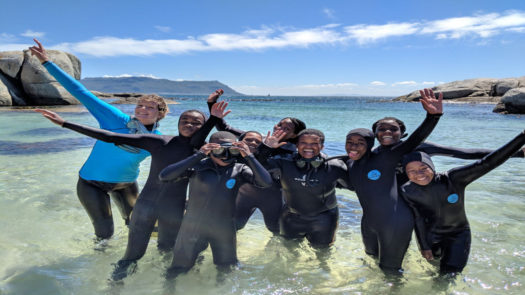
How can we make a difference in our daily lives to protect the oceans?
Right now there is a global spotlight on plastic in the ocean. We can turn off the tap and stop single-use plastic, but I do want to encourage people to understand that when it comes to what is really threatening the ocean, this is one of many challenges. We don’t solve the challenges of the oceans if we solve plastic pollution. The top threats are overfishing and how we consume the ocean, plastic pollution, climate change and ocean warming. To address overfishing we need to become more aware of what we eat that comes from the sea – we need to know if it is sustainable. The reality is that more than 90% of fish stocks are overfished so chances are more than 90% of whats on the menu is unsustainable. Educate yourself on your region, and question where seafood is from, the fish stock count, how was it fished, because in some regions eating a small tuna is sustainable but in other regions, it really isn’t. If you want to be a conscious seafood consumer you have to really educate yourself.
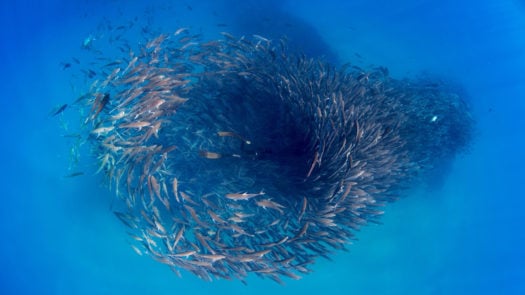
There are organisations in nearly every country that have created a sustainable seafood guide: there is a WWF app and other good fish guide apps too. Start voting with your wallet too – when you go to a restaurant ask if the seafood on the menu is sustainable and if the restaurant doesn’t know then refuse it. If several people do that then I’m pretty sure the restaurant will change their menu or supplier. I’ve changed menus all over South Africa because I’ve asked those questions. That’s a really easy thing to do. Consumers have power and we can really wield that muscle for good.
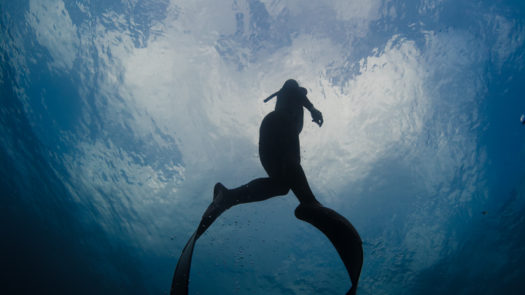
The second challenge is plastic pollution. We need to become aware of the amount of single-use plastic in our lives and what the alternatives are. The alternatives are different regionally, but we shouldn’t use plastic water bottles, avoid coffee in a cup with a plastic lid, avoid straws and we should educate ourselves on which plastics are recyclable where. Climate change is another huge issue which is all-encompassing. We need to find out how we can tred lighter from what we consume, the fashion we wear, what car we drive, or if we take public transport and of course how we travel. Organisations like Jacada and I AM WATER are leading the charge with carbon offsets. Everything we do plays into climate change.
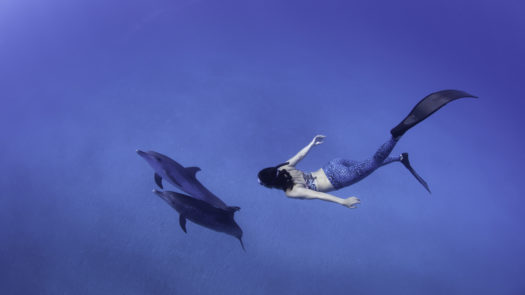
When you really think of how to be a more ocean-friendly person it changes your whole lifestyle. Every second breath you take comes from the ocean and it’s so important to have an understanding of a shared planet – I always say it should have been called Planet Ocean. Our work is an expression of our love for the ocean and we believe the ocean belongs to all of us. The oceans deserve exploration and protection: less than 5% of the ocean is explored, can you believe that more people have been to the moon than the Mariana Trench? Freediving is a toolkit to explore the oceans and meet the marine life there – it is the purest way to experience the ocean. The manta ray is an embodiment of how little we know about marine life, and in the exhibition, there is an image of myself diving and playing with a large female ray. We swam together for three hours! I even swam under her and I blew bubbles up onto her stomach which scared the fish off her back so she loved it! We have to do more to protect marine life too: dolphins are sadly still in captivity and they need our voices – on land they are silent but in water, they are very loud!
Hanli’s exhibition ‘The Last Wilderness’ is currently open at The Haven, 29/F, Wyndham Place, 40-44 Wyndham Street, Central, Hong Kong. Please see The Haven’s page for more information.
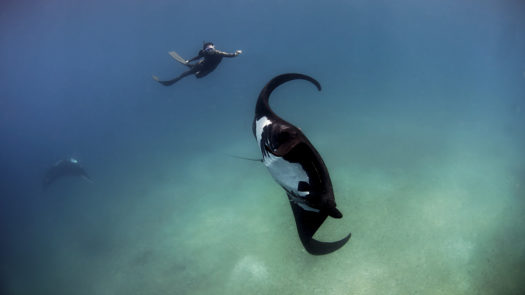
Travel responsibly with these example trips
Feeling inspired to explore the world's oceans like Hanli? Speak to one of our expert travel designers today
